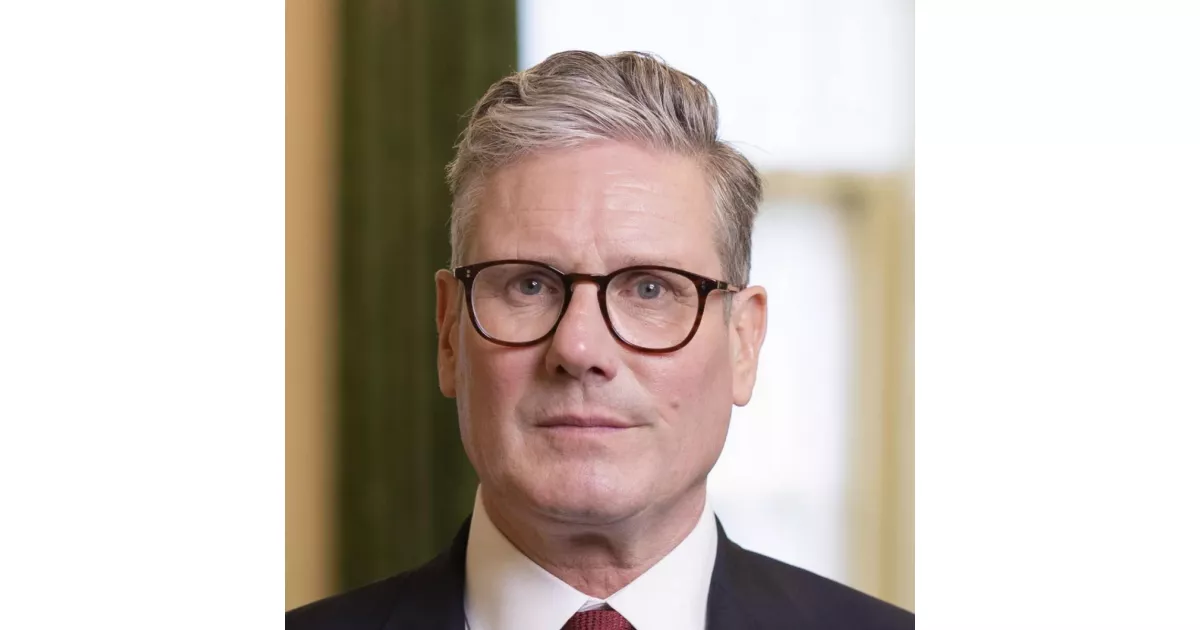How Keir Starmer built a successful career. Explore key moments that defined the journey.
Keir Starmer is a British politician and lawyer, currently serving as Prime Minister of the United Kingdom since 2024. He has led the Labour Party since 2020 and was previously the Leader of the Opposition. Starmer has been the Member of Parliament for Holborn and St Pancras since 2015. Before entering politics, he was the Director of Public Prosecutions from 2008 to 2013, giving him a strong legal background prior to his political career.
1987: Became a barrister
In 1987, Starmer became a barrister at the Middle Temple.
1990: Served as a legal officer for Liberty
From 1987 until 1990, Starmer served as a legal officer for the campaign group Liberty.
1999: Junior Barrister on Lee Clegg's appeal
In 1999, Starmer was a junior barrister on Lee Clegg's appeal.
April 2002: Appointed Queen's Counsel
On April 9, 2002, Starmer was appointed Queen's Counsel at the age of 39.
2002: Member of Death Penalty Advisory Panel
From 2002, Starmer served as a human rights advisor to the Northern Ireland Policing Board and also as a member of the Foreign, Commonwealth and Development Office's Death Penalty Advisory Panel.
2002: Took silk as a Queen's Counsel
In 2002, Starmer took silk as a Queen's Counsel.
July 2008: Named Head of the Crown Prosecution Service
In July 2008, Patricia Scotland named Starmer as the new Head of the Crown Prosecution Service (CPS) and Director of Public Prosecutions (DPP).
November 2008: Succeeded Ken Macdonald
On 1 November 2008, Starmer succeeded Ken Macdonald as Head of the Crown Prosecution Service (CPS) and Director of Public Prosecutions (DPP).
2008: Became Director of Public Prosecutions
In 2008, Keir Starmer became the Director of Public Prosecutions.
2008: End of term in Death Penalty Advisory Panel
In 2008, Starmer's term ended in the Foreign, Commonwealth and Development Office's Death Penalty Advisory Panel.
2009: Became a bencher
In 2009, Starmer became a bencher at the Middle Temple.
February 2010: Prosecution of MPs for False Accounting
In February 2010, Keir Starmer, as the Director of Public Prosecutions, announced the decision to prosecute three Labour MPs and a Conservative peer for offences relating to false accounting following the parliamentary expenses scandal. All were later found guilty.
2011: Prioritization of Rapid Prosecutions during England Riots
In 2011, Keir Starmer prioritized rapid prosecutions of rioters over long sentences during the England riots, concluding that this approach helped restore control over the situation.
2011: Introduced reforms
In 2011, Starmer introduced reforms that included the "first test paperless hearing".
February 2012: Prosecution of Chris Huhne
In February 2012, Keir Starmer announced that Chris Huhne would be prosecuted for perverting the course of justice, reinforcing the principle that politicians would be prosecuted when sufficient evidence existed.
2012: "Twitter Joke Trial" and Jimmy Savile Scandal
In 2012, Keir Starmer faced allegations regarding his role in the prosecution of Paul Chambers in the "Twitter joke trial," which the CPS denied. Also in 2012, following the exposure of Jimmy Savile's sexual abuse crimes, Starmer acknowledged the public's demand for answers regarding how Savile evaded justice for so long.
November 2013: Stepping Down as Director of Public Prosecutions
In November 2013, Keir Starmer stepped down from his role as the Director of Public Prosecutions and was succeeded by Alison Saunders.
2013: Changes to Sexual Abuse Investigations
In 2013, Keir Starmer announced changes to how sexual abuse investigations were to be handled amid Operation Yewtree, including a panel to review complaints.
2013: End of term as Director of Public Prosecutions
In 2013, Keir Starmer ended his term as the Director of Public Prosecutions.
December 2014: Selected as Labour Candidate
In December 2014, Keir Starmer was selected as the Labour parliamentary candidate for Holborn and St Pancras.
2014: Represented Croatia at the genocide hearings
In 2014, Starmer represented Croatia at the genocide hearings before the International Court of Justice at The Hague.
September 2015: Appointment to Shadow Cabinet
In September 2015, Keir Starmer was appointed to Jeremy Corbyn's Shadow Cabinet as Shadow Home Office Minister.
2015: Became Member of Parliament
In 2015, Keir Starmer became the Member of Parliament (MP) for Holborn and St Pancras.
2015: Elected as MP for Holborn and St Pancras
In 2015, Keir Starmer was elected as the Member of Parliament for Holborn and St Pancras.
2015: Elected to the House of Commons
In 2015, Starmer was elected to the House of Commons at the general election.
2015: Declined Leadership Bid and Support for Andy Burnham
In 2015, after Ed Miliband's resignation, Keir Starmer was urged to stand in the Labour Party leadership election but declined, citing his inexperience. He supported Andy Burnham, who finished second to Jeremy Corbyn.
June 2016: Resignation from Shadow Cabinet
In June 2016, Keir Starmer resigned from his role as Shadow Home Office Minister as part of widespread Shadow Cabinet resignations in protest at Jeremy Corbyn's leadership after the 2016 EU Referendum result.
September 2016: Appointment as Shadow Brexit Secretary
In September 2016, following Jeremy Corbyn's re-election, Keir Starmer accepted the position of Shadow Secretary of State for Exiting the European Union.
2017: Re-elected as MP
In 2017, Keir Starmer was re-elected as the MP for Holborn and St Pancras, increasing his majority.
2019: Corbyn's resignation
Following Corbyn's resignation after Labour's defeat at the 2019 general election, Starmer succeeded him by winning the 2020 leadership election.
2019: Defeat at General Election
Following the Labour party's defeat at the 2019 general election, Corbyn announced he would not lead the party at the next election. Starmer began distancing himself from Corbyn's leadership.
2019: Re-election as MP
In 2019, Keir Starmer was re-elected as the MP for Holborn and St Pancras, with a reduced majority.
January 2020: Announcement of Labour Leadership Candidacy
On January 4, 2020, Keir Starmer announced his candidacy for the Labour leadership election, gaining support from figures like Gordon Brown and Sadiq Khan. He ran on a left-wing platform, opposing austerity and supporting common ownership of key utilities.
April 2020: Victory in Labour Leadership Contest
On April 4, 2020, Keir Starmer was declared the winner of the Labour leadership contest, defeating Rebecca Long-Bailey and Lisa Nandy with 56.2 per cent of the vote.
2020: Became Leader of the Labour Party
In 2020, Keir Starmer became the Leader of the Labour Party and Leader of the Opposition.
2020: Won leadership election
In 2020, Starmer won the leadership election and moved Labour towards the political centre.
May 2021: First Shadow Cabinet Reshuffle
In May 2021, Keir Starmer conducted the first of three reshuffles of his Shadow Cabinet.
November 2021: Second Shadow Cabinet Reshuffle
In November 2021, Keir Starmer conducted the second of three reshuffles of his Shadow Cabinet.
September 2023: Third Shadow Cabinet Reshuffle
In September 2023, Keir Starmer conducted the third reshuffle of his Shadow Cabinet which reduced the representation of the left and soft left on the Opposition frontbench, while increasing the representation of the Party's right.
2023: Labour party made significant gains
In 2023, Labour party made significant gains in the local elections.
June 2024: Release of Labour Party's 2024 Manifesto
In June 2024, Keir Starmer released the Labour Party's 2024 manifesto, titled "Change", which focused on economic growth, healthcare, education, and workers' rights. It pledged a new publicly owned energy company (Great British Energy), a "Green Prosperity Plan", reducing patient waiting times in the NHS, and renationalisation of the railway network (Great British Railways).
July 2024: First Prime Minister's Questions
In July 2024, Keir Starmer's first acts as prime minister included declaring the Rwanda asylum plan "dead," tasking Yvette Cooper with establishing a Border Security Command, touring the UK, meeting various leaders and regional mayors, establishing the Council of the Nations and Regions, and attending his first Prime Minister's Questions in parliament on July 24th, 2024.
July 2024: Biden congratulates Starmer
In July 2024, following the 2024 general election, US President Joe Biden congratulated Starmer on "a hell of a victory".
July 2024: Appointed Prime Minister
On 5 July 2024, Keir Starmer was appointed Prime Minister, First Lord of the Treasury and Minister for the Civil Service by King Charles III. He is the first Labour prime minister since Gordon Brown in 2010 and the first one to win a general election since Tony Blair in 2005.
July 2024: Attended NATO summit
The first overseas meeting Starmer attended as prime minister was the 2024 NATO summit held in Washington from 9 to 11 July 2024. On the flight to the summit, Starmer laid out a "cast iron" commitment to increase defence spending to the NATO target of 2.5 per cent of GDP.
August 2024: Public-sector worker pay increase
In August 2024, Starmer's government agreed to increase public-sector worker pay by 5 to 7 per cent.
August 2024: Talks towards revising a Germany-UK co-operation agreement announced
On 27 August 2024, Starmer and German Chancellor Olaf Scholz announced talks towards revising a Germany-UK co-operation agreement covering areas including defence, energy security, science and technology.
September 2024: Meeting with Donald Trump at Trump Tower
In September 2024, during a visit to New York City to address the UN General Assembly, Starmer met Republican Party presidential candidate Donald Trump at Trump Tower. Following the meeting, Starmer said it was "good" to have met with Trump and that the meeting was an opportunity for both Trump and Starmer to establish a working relationship.
September 2024: Pledge that there would be no more money for the NHS without reform
On September 11th, 2024, Starmer pledged that there would be no more money for the NHS without reform, stating that the solution was reform, not money.
October 2024: Enhancement of employment regulations
On October 10th, 2024, the Government implemented an increase in minimum wages and a wide array of rights. On October 14th, billions worth of investments in emerging growth sectors including AI and life sciences, and infrastructure were unveiled at the government's inaugural International Investment Summit.
October 2024: October 2024 budget
On October 30th, 2024, Chancellor of the Exchequer Rachel Reeves presented the October 2024 budget to the House of Commons, covering Labour's fiscal plans. The National Minimum Wage is set to increase by 6.7 per cent and a £22.6 billion increase in the day-to-day health budget was announced, with a £3.1 billion increase in the capital budget. Education will receive £6.7 billion of capital investment.
November 2024: Meeting with Xi Jinping at the G20 summit
In November 2024, Starmer met Chinese leader Xi Jinping at the G20 summit in Rio de Janeiro and told him he wanted to build a 'consistent, durable, respectful' relationship with China.
2024: NATO summit
At the 2024 NATO summit, Starmer signalled that Ukraine could use British Storm Shadow missiles to strike military targets inside Russia, during the Russian invasion of Ukraine. Starmer called for an "irreversible" membership strategy for Ukraine to join NATO.
2024: Became Prime Minister
In 2024, Keir Starmer became the Prime Minister of the United Kingdom.
2024: Revealing Thoughts on the 2019 Election
In 2024, Keir Starmer revealed that he was "certain that we would lose the 2019 election".
2024: Labour's 2024 election manifesto focuses on domestic issues
In 2024, Keir Starmer stated his primary concerns would be economic growth, reforming the planning system, infrastructure, energy, healthcare, education, childcare, and strengthening workers' rights, as set out in Labour's 2024 election manifesto.
2024: Re-election as MP and Becoming Prime Minister
In 2024, Keir Starmer was re-elected as the MP for Holborn and St Pancras with a further reduced majority, despite a Labour landslide nationally, and him becoming Prime Minister.
2024: Labour party made significant gains
In 2024, Labour party made significant gains in the local elections.
2024: Led Labour to victory at the general election
In 2024, Starmer led Labour to a landslide victory at the general election, ending fourteen years of Conservative government. Under his premiership, various policies were implemented, and he addressed foreign policy issues.
February 2025: Starmer meets with President Trump at the White House
In February 2025 Starmer met with President Trump at the White House to discuss continued support to Ukraine and a potential peace deal. They additionally discussed a potential trade deal. He also presented a hand written letter from King Charles III inviting the President to a historic second state visit to the UK.
March 2025: Plan to abolish NHS England announced
In March 2025, Keir Starmer and Health Secretary Wes Streeting announced a two-year plan to abolish NHS England to reduce bureaucracy and increase funding for more effective purposes within the service.
Mentioned in this timeline
Ukraine is a country in Eastern Europe the second-largest on...
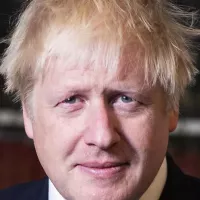
Boris Johnson a British politician and writer served as Prime...
Iraq officially the Republic of Iraq is a West Asian...
Hamas is a Sunni Islamist Palestinian nationalist political organization with...
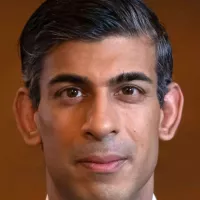
Rishi Sunak is a British politician who served as Prime...

Jimmy Savile was a British media personality and DJ famous...
Trending

19 minutes ago NFL teams scout Maxx Crosby; Lions pursue a 'mega-deal' amid trade rumors.
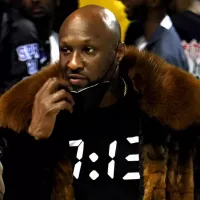
20 minutes ago Lamar Odom claims he experienced the afterlife after 2015 overdose in Netflix Untold.
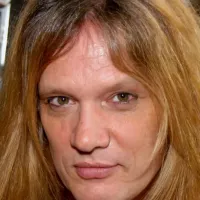
20 minutes ago Christina Applegate Details Breakup with Brad Pitt, Dating Sebastian Bach

20 minutes ago Maisy Stella and Tatum Grace Hopkins Cast in 'Life is Strange' TV Series.
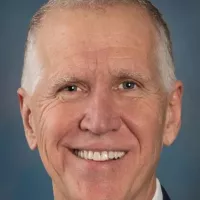
1 hour ago North Carolina Early Voting Surges Before 2024 Primary Elections, Featuring Thom Tillis

1 hour ago Jurickson Profar Suspended 162 Games by MLB for Second PED Violation.
Popular

Jesse Jackson is an American civil rights activist politician and...

Hillary Diane Rodham Clinton is a prominent American politician lawyer...

Jim Carrey is a Canadian-American actor and comedian celebrated for...

Ken Paxton is an American politician and lawyer serving as...

XXXTentacion born Jahseh Dwayne Ricardo Onfroy was a controversial yet...

Bill Clinton served as the nd U S President from...
